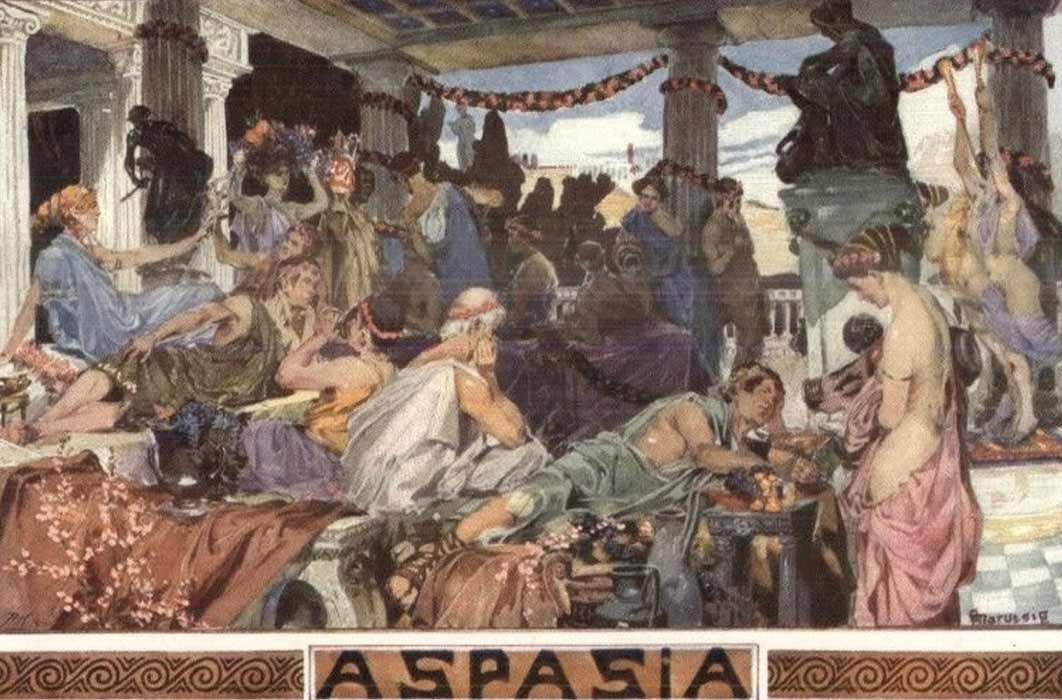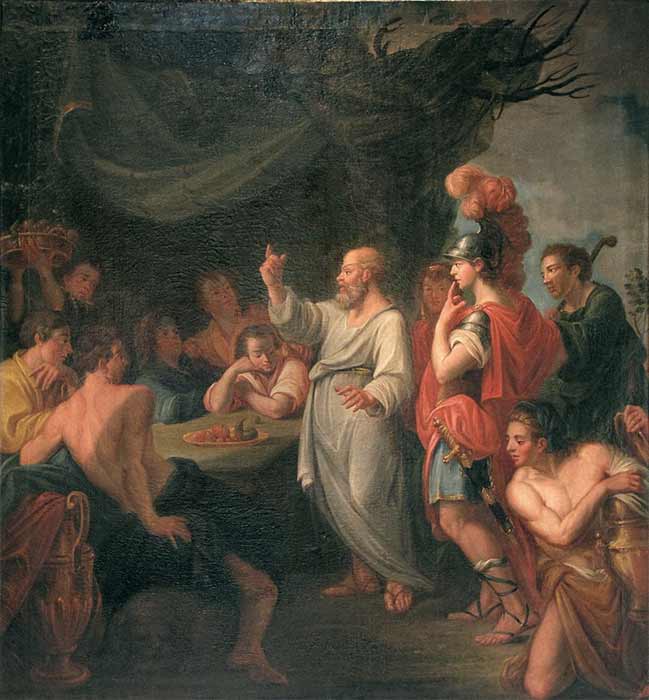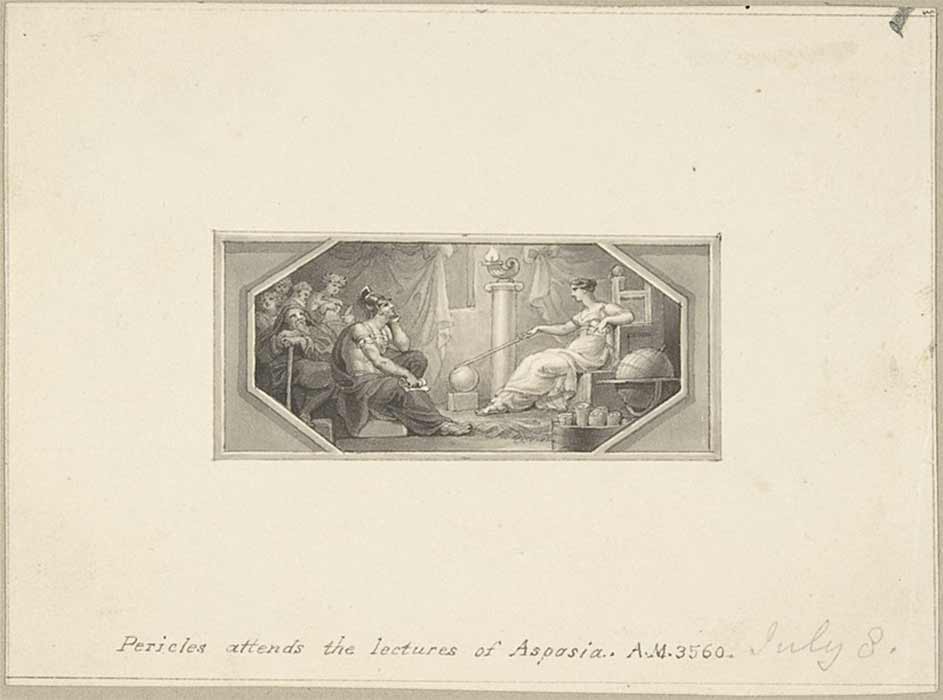
Aspasia The Metiki Who Seduced And Confused Athens’ Powerful Men
In his writing on the Athenian Statesman Pericles, Plutarch (c. 46 – c. 119 AD), marvels at the "... great art or power this woman had, that she managed as she pleased the leading men of the state and gave the philosophers an opportunity to discuss her in great length and exalted terms." The woman referred to by Plutarch is Aspasia. In Plutarch's eyes, and perhaps in the eyes of many other men of his time, Aspasia had managed to do the unthinkable: she had seduced Pericles, the most powerful man in Athens, capturing both his affection and respect, as well as being revered by other men for her wit and intelligence.

Socrates teaching Pericles by Nicolas Guibal (1780) (CC BY-SA 2.0)
Aspasia The Intellectual Epicenter Of Athens
Apart from being held in high favor by Pericles for her rare political wisdom, Aspasia’s house was the intellectual center of Athens which attracted the most prominent writers and thinkers of the age, including the philosopher Socrates himself. Socrates would sometimes visit her with his disciples and intimate friends who in turn brought their wives to visit Aspasia and hear her speak. Aspasia’s ability as a conversationalist and adviser was also referred to in the writings of Plato, Xenophon and Aristophanes, among others. In short, Aspasia was known as much more than being the mistress of Pericles and an person of physical beauty. In Memorabilia, Socrates quotes Aspasia as saying that a matchmaker should tell the truth about the good characteristics of the man. Socrates mentions her again in Oeconomicus, by describing her as being extremely knowledgeable about household management and the economic partnership between husband and wife. In his Life of Pericles, Plutarch tells that Aspasia was so celebrated that Cyrus the Younger gave the name “Aspasia” to his favorite concubine, Milto of Phocaea. In Menexenus, Plato even claims that Aspasia instructed Socrates in rhetoric and authored Pericles' famed funeral oration herself.

Pericles attends the Lectures of Aspasia by Edward Francis Burney (18 – 19th century)Metropolitan Museum of Art (CC0)
Character Assassination Of Aspasia
At first glance, all these claims give the impression of not only Aspasia as a very impressive figure, but also her ability to evoke affection and admiration from these men. However, writings about Aspasia can also be read in a completely different context. For example, comic poets may have exalted Aspasia as a mean to criticize Pericles through his foreign-born mistress. Socratic writers were often even more ironic in their statements. Aeschines, in his Athenaeus, says that "the women who come from Ionia are adulterous and avaricious." This can be construed as an insult towards Aspasia who came from Miletus as Ionia comprised of a coastal strip stretching from Phocaea to Miletus, and included the islands of Chios and Samos.
- Socrates’ Philosophy of Love Inspired by Diotima, Princess, Priestess and Philosopher
- Thesmophoria: Feminine Consciousness in Ancient Greece
- Hair-Raising Status of Ancient Gods and Men
Other virtues of Aspasia may also have been mentioned in a cynical light. For example, when Socrates tells about Aspasia explaining the proper relationship between husband and wife, he may have unwittingly referenced his own wife Xanthippe who is especially remembered for being of a shrewish temperament and with whom Socrates famously did not have a harmonious relationship. However, Socrates may have also meant this as a rebuke towards Aspasia by implying that the reason Aspasia the concubine could talk freely about the relationship between husband and wife was because more respectable women, secluded in the home, cannot be called upon to give such advice.

The debate of Socrates and Aspasia (Public Domain)
Management of the household was the province of the wife, and yet Socrates introduces Aspasia, a concubine, as an authority on domestic matters as if she was trespassing in the domain of a wife in some way. When Aspasia is said to have composed the epitaph delivered by Pericles (something that would have been viewed as an accomplishment for modern women), the notion that the words are composed by a woman instead of a man, a foreigner instead of a citizen, a mistress and not a wife would have been viewed as a source of embarrassment to Pericles, and no doubt would have been used to humiliate and insult him. The more spotlight being given to Aspasia, the less effective and masculine Pericles was viewed.




